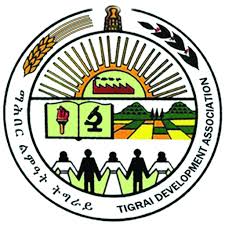Addis Ababa, May 18, 2025
Ethiopia’s healthcare system is on the verge of a full-scale shutdown as medical professionals across the country prepare to launch an indefinite nationwide strike starting Monday, May 19. The strike comes in response to mounting frustrations over poor wages, unsafe working conditions, and a wave of arrests targeting health workers who have been peacefully protesting for reform.
In the past week alone, authorities have detained between 80 and 190 health professionals, according to varying reports. The arrests took place during a partial strike, where workers withheld non-emergency services in protest of what they describe as “starvation-level” wages and systemic neglect. Ethiopia currently offers among the lowest doctor salaries in Africa — an average of just $85 per month — compared to $3,400 in South Africa and $3,000 in Kenya and Botswana.
Leading professional bodies, including the Ethiopian Health Professionals Association (EHPA), have strongly condemned the arrests. In statements released over the past week, they warned that continued government inaction and repression could lead to the total collapse of the healthcare system.
“This government can find over $10 billion to finance war, yet claims it cannot afford to pay the doctors who keep its people alive,” one senior physician said anonymously.
Reports from institutions like the University of Gondar suggest a broader campaign of retaliation against health workers, with accounts of forced evictions from dormitories, threats, interrogations, and dismissals. In a formal letter to the Ministry of Health, the Tigray Medical Association outlined the root causes of the crisis, which include:
- Severely inadequate wages and absence of benefits,
- Dangerous, understaffed healthcare facilities,
- Lack of housing, transportation, and logistical support,
- Suppression of union rights and academic freedom,
- Neglect of healthcare infrastructure in conflict-affected regions.
Despite repeated calls for dialogue and reform, the government has yet to take meaningful action.
Starting Monday, hospitals and clinics in Addis Ababa and regional centers are expected to operate with minimal staff, limiting services to emergency cases only. Medical schools and training programs are also expected to halt operations as students and educators join the walkout in solidarity.
Ethiopian health professionals are demanding immediate government action to address their deteriorating working and living conditions. They are calling for a significant salary adjustment that reflects the cost of living, noting that their current income is insufficient to meet basic needs and forcing many into poverty. They also insist on improved working conditions, including the availability of essential medical supplies and adequate infrastructure to provide safe and effective care. Furthermore, they demand the unconditional release of their detained colleagues, including leaders of the Ethiopian Health Professionals Association, who have been arrested for exercising their right to protest. Finally, they are urging the government to respect their constitutional rights to organize, speak out, and advocate for humane treatment without fear of retaliation or criminalization
“The health sector is on the brink,” one analyst warned. “If this crisis continues, the cost will be paid not in politics — but in human lives.”
As of Sunday evening, the Ethiopian government had not issued any measure to satisfy the protesters. Analysts warn that the failure to resolve the standoff could deepen public mistrust in national institutions already weakened by ongoing conflict, economic instability, and growing authoritarianism.
Following the arrest of Yonathan Dagnew, President of the Ethiopian Health Professionals Association, on May 4, the government has reportedly taken control of the Association’s Telegram channel. The platform, once used to coordinate peaceful advocacy, is now allegedly being used to disseminate government propaganda aimed at discrediting the nationwide strike. In a further sign of interference, the Association’s X (formerly Twitter) account has become inaccessible, displaying errors that suggest tampering or suspension. These developments have raised serious concerns about digital repression and the regime’s broader crackdown on health workers’ rights to protest and organize peacefully.


